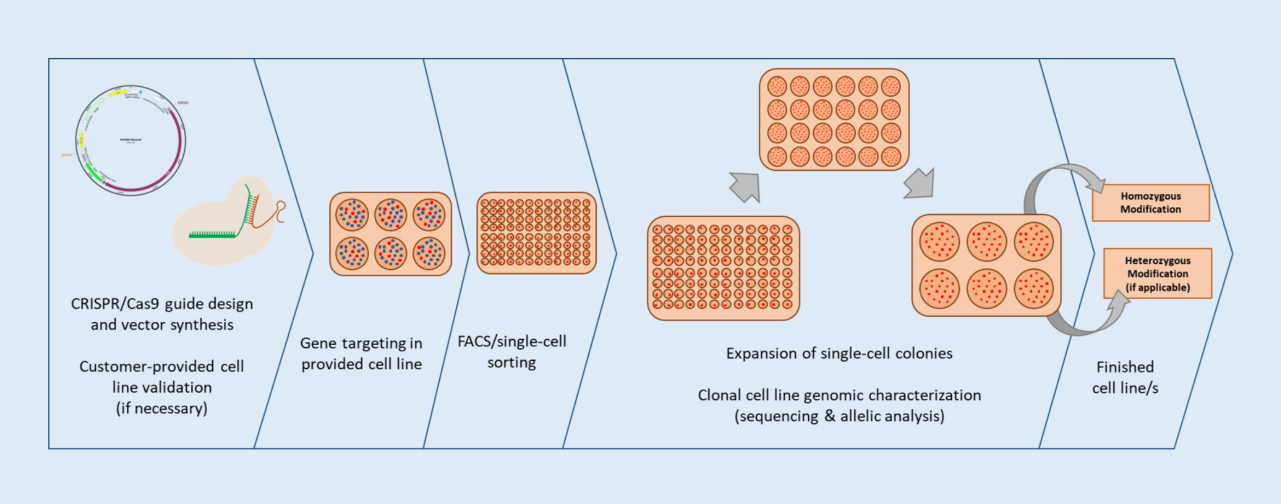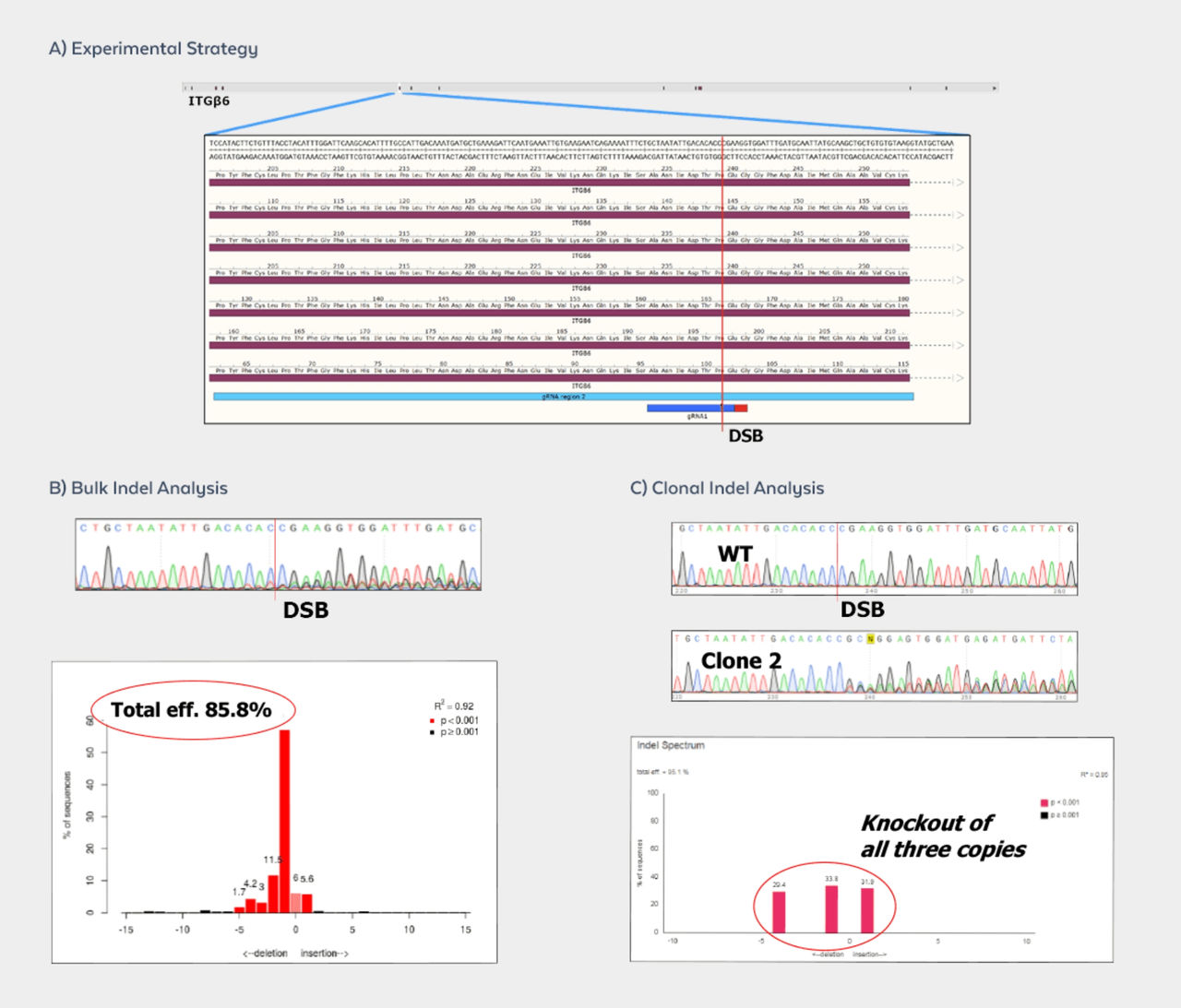GENOME EDITING
Research Planning Expertise
Let our experts help your researchers plan and execute their translational genome editing experiments.

Genome Editing
Operating within ChristianaCare, a community health care provider in Wilmington, Delaware, the pioneering Gene Editing Institute is a patient-first, innovative research organization that has evolved into an acknowledged global leader in the field of gene editing for human impact.
The Institute has produced several firsts, including the development of the first CRISPR tool to repair DNA outside the human cell to speed therapies to patients.
Contact the Gene Editing Institute today to discuss how we can put our expertise to work to advance your research.
Specific Service Offerings
Timeline

Case Studies
Strategy: Target all known splicing variants of ITGβ6 by choosing appropriate gRNA to ensure effective knockout (A). TIDE analysis of the transfected cells (bulk population) shows high knockout efficiency (B). TIDE analysis of a clonally expanded cell shows that all three copies of ITGβ6 are knocked-out via frame-shifting indels (C).

Need more information?
To find out more, email us at geneeditinginstitute@christianacare.org or call
302-623-5306.


